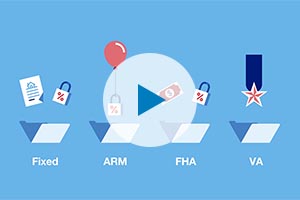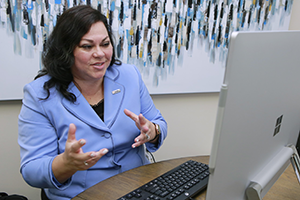
Maximizing your infrastructure finance project with a full suite trustee and agent

The ongoing evolution of custody: Tips for renewing your custody contract

Evaluating interest rate risk creating risk management strategy

Everything you need to know about changes to Form 8038-CP reporting

Money Moments: How to finance a home addition

6 pandemic money habits to keep for the long term

How to fund your business without using 401(k) savings

Employee benefit plan management: trustee vs. custodian

What’s the difference between Fannie Mae and Freddie Mac?

4 benefits of independent loan agents

Digital processes streamline M&A transactions

The benefit of a multi-jurisdictional European trustee

An asset manager’s secret to saving time and money

At your service: outsourcing loan agency work

Changes in credit reporting and what it means for homebuyers

Case study: U.S. asset manager expands to Europe

These small home improvement projects offer big returns on investment

Webinar: Mortgage basics: Finding the right home loan for you

Dear Money Mentor: What is cash-out refinancing and is it right for you?

Can ABL options fuel your business — and keep it running?

5 financial goals for the new year

How to get started creating your business plan

Collateral options for ABL: What’s eligible, what’s not?

ABL mythbusters: The truth about asset-based lending

Are you ready to restart your federal student loan payments?

Programme debt clients want reliable service – no matter where they’re based

How to pay off credit card debt

5 tips to use your credit card wisely and steer clear of debt

How to build and maintain a solid credit history and score

How to improve your credit score

Emerging trends in Europe: An outlook from multiple perspectives

Middle-market direct lending: Obstacles and opportunities

Managing complex transactions: what your corporate trustee should be doing

How to maximise your infrastructure finance project

Luxembourg's thriving private debt market

High-yield bond issuance: how to avoid 5 common pain points

European outlook: Trustee experience more important than ever

How jumbo loans can help home buyers and your builder business

Prioritizing payroll during the COVID-19 pandemic

5 tips to help you land a small business loan

Streamline operations with all-in-one small business financial support

How to establish your business credit score

Opening a business on a budget during COVID-19

When to consider switching banks for your business

What are conforming loan limits and why are they increasing

5 myths about emergency funds

How to talk to your lender about debt

Choosing your M&A escrow partner

7 steps to keep your personal and business finances separate

Tech lifecycle refresh: A tale of two philosophies

Beyond Mars, AeroVironment’s earthly expansion fueled by U.S. Bank

High-yield bond issuance: 5 traits lawyers should look for in a service provider

Test your loan savvy

Webinar: Mortgage basics: What’s the difference between interest rate and annual percentage rate?

How do I prequalify for a mortgage?

Can you take advantage of the dead equity in your home?

Webinar: Mortgage basics: How much house can you afford?

Is a home equity line of credit (HELOC) right for you?

8 steps to take before you buy a home

Webinar: Mortgage basics: 3 Key steps in the homebuying process

Webinar: Mortgage basics: Buying or renting – What’s right for you?

How to use your home equity to finance home improvements

Webinar: Mortgage basics: What is refinancing, and is it right for you?

Should you get a home equity loan or a home equity line of credit?

6 questions to ask before buying a new home

What is refinancing a mortgage?

What to know when buying a home with your significant other

Webinar: Mortgage basics: How does your credit score impact the homebuying experience?

What is a home equity line of credit (HELOC) and what can it be used for?

Is it the right time to refinance your mortgage?

Overcoming high interest rates: Getting your homeownership goals back on track

How to use credit cards wisely for a vacation budget

Which debt management technique is right for you?

10 uses for a home equity loan

Know your debt-to-income ratio

Is a home equity loan for college the right choice for your student

How to apply for federal student aid through the FAFSA

Things to know about the Servicemembers Civil Relief Act

Tips to overcome three common savings hurdles

What to consider before taking out a student loan

Common unexpected expenses and three ways to pay for them

Are savings bonds still a thing?

How I did it: Paid off student loans

The A to Z’s of college loan terms

Easing complex transactions: Project finance case studies

Costs to consider when starting a business

Questions to ask before buying a car

Webinar: Mortgage basics: Prequalification or pre-approval – What do I need?

Your financial aid guide: What are your options?

Top 3 considerations when selecting an IPA partner

An investor’s guide to marketplace lending

Know your customer: How updated rules affect M&A closings

What is a CLO?

Depositary bank and collateral agent

3 innovative approaches to ESG investing in Europe

Personal loans first-timer's guide: 7 questions to ask

Consolidating debts: Pros and cons to keep in mind

Should rising interest rates change your financial priorities?

What you should know about buying a car

What you need to know before buying a new or used car

Take the stress out of buying your teen a car

How to choose the best car loan for you

Practical money skills and financial tips for college students

5 tips to use your credit card wisely and steer clear of debt

Co-signing 101: Applying for a loan with co-borrower

What’s a subordination agreement, and why does it matter?

Understanding the true cost of borrowing: What is amortization, and why does it matter?

What’s your financial IQ? Game-night edition

How to use debt to build wealth

How having savings gives you peace of mind

How I did it: My house remodel

Everything you need to know about consolidating debts

Student checklist: Preparing for college

Webinar: Uncover the cost: College diploma

Your quick guide to loans and obtaining credit

Programme debt Q&A: U.S. issuers entering the European market

4 questions to ask before you buy an investment property

Good debt vs. bad debt: Know the difference

Parent checklist: Preparing for college

U.S. Bank asks: What do you know about credit?

